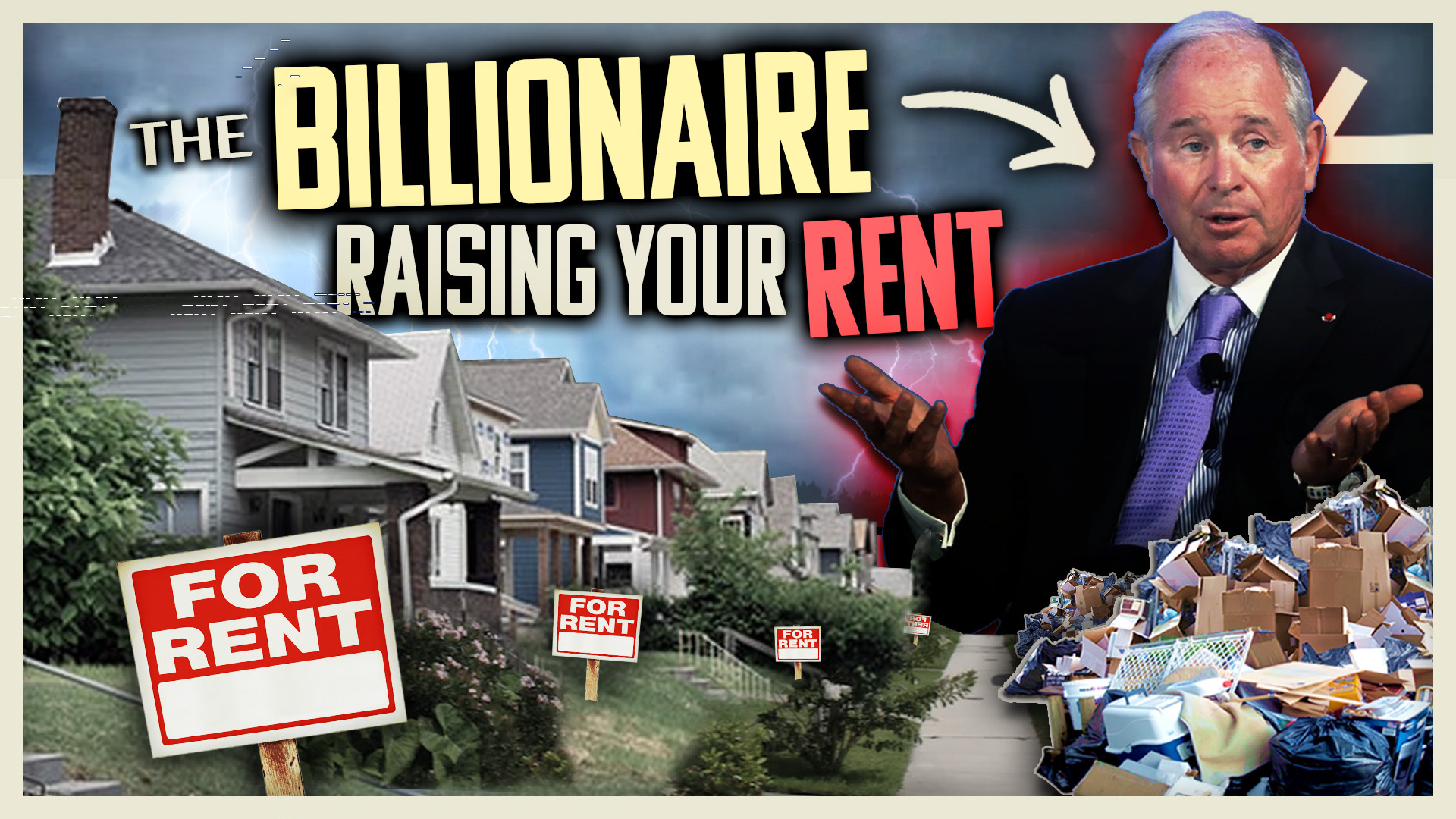Physical Address
304 North Cardinal St.
Dorchester Center, MA 02124

Blackstone is criticized for its aggressive investment strategies and negative impact on affordable housing markets. Critics argue it prioritizes profits over social responsibility.
Blackstone, a global investment firm, often faces backlash for its business practices. Its aggressive acquisition of residential properties has led to higher rents and decreased housing affordability. Many believe this contributes to the housing crisis in urban areas. The firm’s focus on profit maximization often overshadows community needs and ethical considerations.
Blackstone’s involvement in controversial industries, such as fossil fuels, also raises environmental concerns. These factors contribute to its negative reputation. Understanding these issues is crucial for evaluating the broader impact of private equity firms on society.
Blackstone is one of the world’s largest investment firms. It has a significant impact on global markets. But why is Blackstone considered bad? This section will explore the key points.
Blackstone was founded in 1985. It is an American private equity firm. The company specializes in alternative asset management. They invest in private equity, real estate, and hedge funds.
Blackstone is known for its aggressive investment strategies. They often buy companies and restructure them. This sometimes leads to job losses and other negative impacts.
Blackstone was founded by Stephen A. Schwarzman and Peter G. Peterson. They started with a small amount of capital. Over the years, the firm grew rapidly. Today, it manages billions of dollars in assets.
The company has made many high-profile acquisitions. Some of these deals have been controversial. Critics argue that Blackstone’s practices harm employees and communities.
| Year | Event |
|---|---|
| 1985 | Blackstone was founded |
| 2007 | Blackstone went public |
| 2019 | Reached $500 billion in assets |
In summary, Blackstone is a powerful investment firm. Its practices raise many ethical questions. Understanding its history helps us see why it is often criticized.

Credit: www.reddit.com
Blackstone, a leading investment firm, faces several ethical concerns. These include labor practices and environmental impact. Understanding these issues is important for informed decision-making.
Blackstone has been criticized for its labor practices. Many workers face poor working conditions. This includes long hours and low wages. Employees often lack job security. They also have limited access to benefits.
| Issue | Details |
|---|---|
| Long Hours | Workers often work more than 40 hours a week. |
| Low Wages | Pay is often below industry standards. |
| Job Security | Many employees are on temporary contracts. |
| Benefits | Limited access to health and retirement benefits. |
Blackstone’s investments have a significant environmental impact. The firm often invests in industries that harm the environment. These include fossil fuels and deforestation projects.
Such investments lead to increased carbon emissions. They also contribute to climate change. The negative impact on ecosystems is significant.
Blackstone’s financial practices have sparked much debate. These practices influence many aspects of the economy. Let’s explore why their financial strategies raise concerns.
Blackstone employs aggressive investment strategies. They often target distressed assets. This can lead to job losses and community disruption.
Their focus on short-term gains can harm long-term stability. Such strategies might not always benefit local economies.
Blackstone’s large capital allows them to dominate markets. This can stifle competition and innovation.
Blackstone heavily uses debt and leverage to finance acquisitions. This increases risk and can destabilize companies.
High leverage can lead to significant debt burdens. Companies may struggle to meet these financial obligations.
Debt-laden companies often cut costs to survive. This can result in layoffs and reduced services.
Using leverage also amplifies financial risk. In economic downturns, this can lead to severe consequences for businesses.
| Aspect | Impact |
|---|---|
| Investment Strategies | Short-term gains, market domination, job losses |
| Debt and Leverage | Increased risk, financial instability, layoffs |

Credit: www.instagram.com
Blackstone’s involvement in the housing market has raised many concerns. Their actions have significant effects on housing availability and affordability. This section examines two key areas: Real Estate Acquisitions and Rent Increases.
Blackstone buys many homes in various regions. They often purchase properties in bulk. This reduces the number of homes available for individual buyers.
Here is a table showing the impact of Blackstone’s acquisitions:
| Year | Homes Purchased | Market Impact |
|---|---|---|
| 2020 | 10,000 | Increased home prices |
| 2021 | 15,000 | Fewer homes for sale |
Bulk buying makes it hard for regular people to buy homes. This drives up home prices. Families struggle to find affordable housing.
Blackstone often raises rents on properties they own. Higher rents hurt many families. People have to spend more on rent, leaving less for other needs.
Let’s look at the rent changes over recent years:
These rent hikes make it tough for families to save money. Higher rents lead to more financial stress.
Families might have to move to cheaper areas. This disrupts their lives and communities.
The presence of Blackstone in various communities has raised concerns. The impact on local businesses and residents is significant. This section explores these effects in detail.
Blackstone often buys properties in different neighborhoods. They usually increase the rent. This affects small, local businesses. These businesses struggle to afford higher rents. Some have to close down. The community loses its unique shops and services.
Big corporations can afford the new rents. They replace local shops. This leads to a loss of community character. People miss their favorite stores and cafes. The local economy suffers as money flows out of the community.
Blackstone’s property purchases often lead to higher rents for residents. Many can’t afford the increased costs. They are forced to move. This displacement disrupts lives and communities. Long-term residents must leave their homes and neighborhoods.
The community loses its diversity. New, wealthier residents move in. The original community feels fragmented. Schools and local services face changes. This affects everyone, not just those who move.
| Impact | Description |
|---|---|
| Local Businesses | Struggle with higher rents, leading to closures and loss of community character. |
| Resident Displacement | Higher rents force residents to move, breaking community bonds and diversity. |
Blackstone, a prominent investment firm, often faces legal challenges. These issues arise due to their business practices. Two main areas of concern are regulatory scrutiny and lawsuits.
Blackstone has faced intense regulatory scrutiny over the years. Authorities monitor their activities closely.
Regulators often question their investment strategies. They want to ensure fair practices. Blackstone’s large-scale operations attract attention.
The firm must comply with many laws. Failure to do so can lead to penalties. Regulatory bodies keep a close watch.
Blackstone has been involved in numerous lawsuits. These legal battles affect their reputation.
Many lawsuits are related to their real estate deals. Some claim unfair practices. Others accuse them of breaching contracts.
Investors also sue Blackstone for financial losses. These lawsuits can be costly. They also damage the firm’s public image.
| Issue | Description | Impact |
|---|---|---|
| Regulatory Scrutiny | Close monitoring by authorities | Potential penalties and fines |
| Lawsuits | Legal battles with various parties | High costs and reputation damage |
Blackstone’s legal issues are significant. They affect their operations and public perception.
Blackstone, one of the world’s largest investment firms, has faced significant public scrutiny. The company’s actions and decisions have led to widespread criticism.
The media often portrays Blackstone negatively. News outlets report on the firm’s controversial investments. Issues like housing and labor practices frequently appear in headlines.
Many articles highlight Blackstone’s role in rising housing costs. Reports claim the firm buys properties and raises rents. This practice has angered many communities.
Labor practices also draw media attention. Stories allege Blackstone’s companies mistreat workers. This further damages the firm’s reputation.
Social media platforms amplify negative views of Blackstone. Users share stories and personal experiences. These posts quickly gain traction and reach a wide audience.
Hashtags like #BoycottBlackstone and #StopBlackstone trend regularly. These hashtags unite people against the firm. They spark conversations and encourage collective action.
Influencers and activists use their platforms to criticize Blackstone. Their large followings help spread the message. This increases pressure on the company to change its practices.

Credit: www.reddit.com
When considering investment options, many find Blackstone problematic due to ethical concerns. Fortunately, there are several alternatives to Blackstone that prioritize ethical investing and community support. Below, we explore some viable options under the subheadings: Ethical Investment Firms and Community Initiatives.
Ethical investment firms prioritize social and environmental responsibility. These firms avoid investments that harm society or the planet. Here are some top ethical investment firms:
These firms ensure your money supports positive initiatives. They avoid harmful industries like tobacco, weapons, and fossil fuels. Choosing ethical firms aligns your investments with your values.
Investing in community initiatives helps local economies thrive. These investments support projects that benefit society. Below are some community-focused investment options:
| Initiative | Focus |
|---|---|
| Community Development Financial Institutions (CDFIs) | Provide affordable loans to underserved communities. |
| Local Cooperatives | Owned and operated by community members. |
| Social Impact Bonds | Fund public projects with positive social outcomes. |
Community initiatives make a direct impact on people’s lives. They create jobs, improve living conditions, and support local businesses. Investing locally strengthens your community and promotes sustainable growth.
Blackstone has a strong reputation in private equity and alternative investments. It is known for its expertise and high returns.
Blackstone faced negative publicity for controversial real estate practices and tenant evictions. They also encountered criticism for environmental concerns and labor disputes.
Blackstone is a globally respected investment firm. Many investors and clients appreciate its strong performance and professional management. Conduct thorough research to determine if it meets your specific needs.
No, Blackstone is not owned by BlackRock. They are separate companies with different ownership structures and business focuses.
Blackstone’s practices often raise ethical concerns and impact communities negatively. Their aggressive investment strategies can lead to higher rents and evictions. Understanding these issues helps consumers make informed decisions. Awareness and scrutiny are crucial. Stay informed to protect your interests and community.